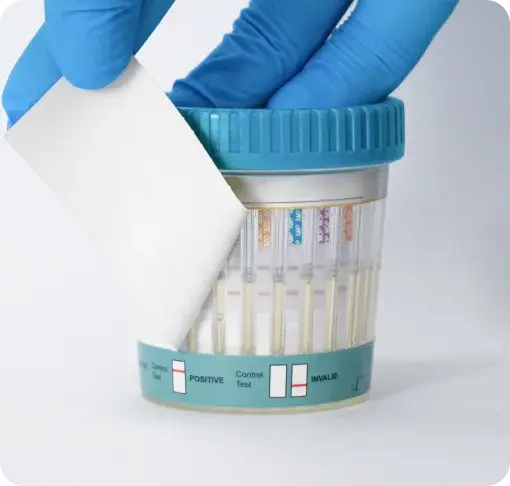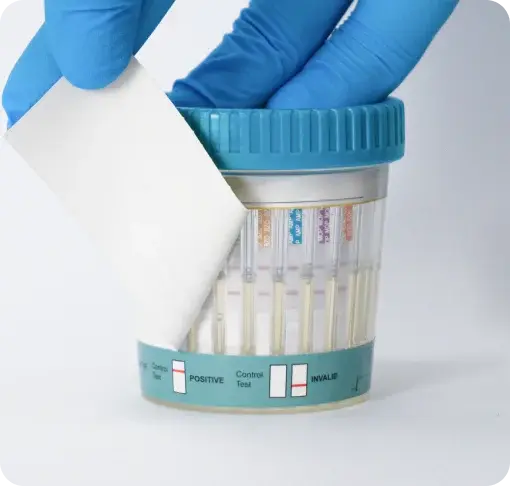Is Point of Care Drug Testing Sufficient For Your Needs?
Drug testing is an essential tool in various industries, from healthcare to the workplace, ensuring safety and compliance. However, it’s important to understand that no single point of care drug test is foolproof. False positives, misinterpretations, and even technical errors can lead to misleading results when conducting rapid screening tests. In this blog, we’ll explore the importance of using multiple testing methods, from point of care, to laboratory, in order to ensure accuracy and fairness, particularly in environments like the workplace and healthcare.
The Limitations of Point of Care Drug Tests
Most drug testing begins with a preliminary screening test. These tests are often quick, cost-effective, and capable of screening for a wide range of substances. Common initial drug tests include:
-
Back-to-lab screening tests
-
Point-of-care tests (like dip cards and oral fluid tests)
While these tests can provide fast results, they are not always definitive. Many of these tests operate by identifying certain metabolites in the urine or saliva, but they can sometimes mistake other substances with similar chemical structures for the target drug. This leads to false positives, where a person may appear to have used a substance when they actually haven’t.
The Role of Confirmatory Testing
Confirmatory testing plays a pivotal role in the drug testing process, especially when addressing the potential for false positives in initial screenings. These tests are designed to provide greater accuracy and precision by employing advanced methods to verify the presence of drugs or their metabolites.
The most widely used confirmatory testing method is:
-
Liquid Chromatography-Tandem Mass Spectrometry (LC-MS/MS):
Renowned for its high accuracy, LC-MS/MS separates substances within a sample, identifying and quantifying each based on its molecular structure. This method is regarded as the gold standard in confirmatory testing due to its ability to differentiate between chemically similar compounds.
Although confirmatory tests are generally more costly and time-consuming than initial screenings, they are invaluable in ensuring the validity of results, particularly in high-stakes scenarios. This is critical in legal or workplace settings, where a false positive can lead to severe consequences such as legal disputes or job termination.
Why Secondary Confirmation Testing Is Valuable
- Reducing False Positives: The main reason to use multiple testing methods is to reduce the chances of false positives. A preliminary test might pick up a substance with a similar chemical profile, but confirmatory tests, like LC-MS/MS, can verify whether the detected substance is actually what it appears to be. By using both a screening test and a confirmatory test, you can be more confident in the results.
-
Ensuring Accuracy in Critical Situations: Drug tests are often employed in healthcare, and workplace settings where inaccurate results can have serious repercussions. In healthcare cases, false positives may lead to wrongful accusations, while misinterpreted results can adversely impact patient treatment plans. By utilising multiple testing methods, these risks are mitigated, providing a safeguard that ensures results are both accurate and reliable.
-
Legal and Ethical Considerations: In many jurisdictions, drug testing for employment or legal purposes is highly regulated. To meet legal standards and avoid potential lawsuits, it’s important to follow best practices in drug testing. This includes using both initial screenings and confirmatory testing to prevent wrongful results. For employers, this also means creating fair drug testing policies that protect employees' rights while ensuring a safe workplace.
-
Addressing Medications and Medical Conditions: People take a wide range of medications that may interfere with drug tests, leading to confusing or false results. For example, someone taking codeine for pain might test positive for opiates on some preliminary tests, even though they are following a prescribed treatment. A confirmatory test can clarify these situations and prevent unnecessary action, such as discipline or legal complications.
Drug testing is a critical tool for safety and compliance in many settings. However, to ensure the most accurate and fair results, relying on just one method of testing is not enough. Initial screening tests are useful, but confirmatory testing is essential to verify results and avoid false positives that could lead to serious consequences. By using multiple testing methods, you can provide more reliable results, reduce the risk of errors, and ensure fairness in the drug testing process.
If you're interested in learning more about drug testing and the importance of multiple testing methods, be sure to check out our webinar, "Understanding False Positives in Drug Testing: How Everyday Foods and Medications Can Affect Results." Watch the full webinar for more insights and expert guidance on this critical topic.


